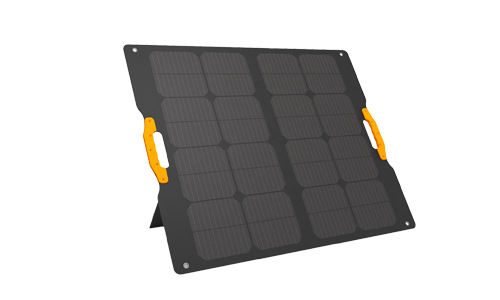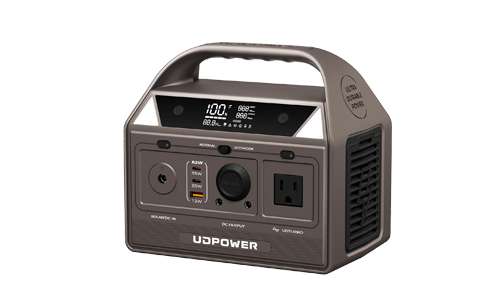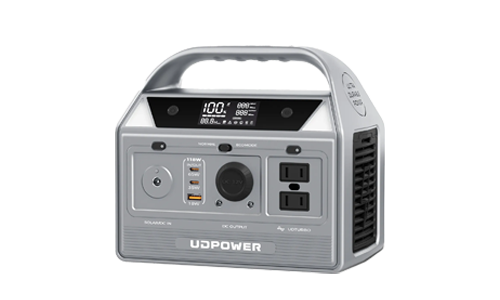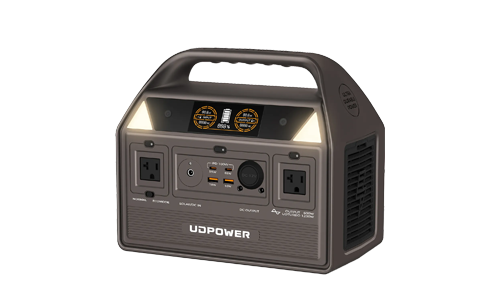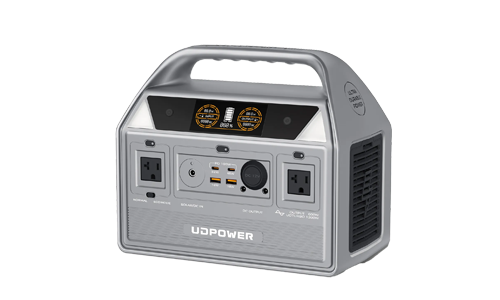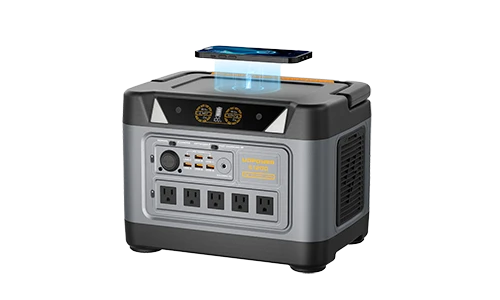Can a Solar Generator Power a House?
ZacharyWilliamWritten by the UDPOWER Energy Team — With over 10 years of experience in lithium battery systems, solar technology, and off-grid power solutions. All content is reviewed by certified solar engineers and energy experts.
Can a Solar Generator Power a House?
Yes, a solar generator can power a house—depending on its size, your energy demands, and how it's integrated into your home’s electrical system. While smaller solar generators are ideal for backup power and camping, high-capacity systems are increasingly capable of supporting essential home appliances or even entire homes for extended periods.

What Is a Solar Generator For a House?
A solar generator is a portable or semi-permanent power system that uses solar panels to convert sunlight into electricity, stores that electricity in a battery, and delivers it via an inverter to AC or DC outputs. Unlike gas-powered generators, solar generators are silent, emission-free, and recharge through solar input—making them ideal for home backup, emergency preparedness, or even limited off-grid living.
Components of a Home Solar Generator System:
- Solar Panels – Capture solar energy.
- Battery Storage – Stores energy for later use.
- Charge Controller – Manages the flow of electricity to and from the battery.
- Inverter – Converts DC battery power into AC household power.
What Size Generator Do I Need For My House?
To power a house, you'll need a generator that matches or exceeds your daily energy needs (measured in watt-hours or kilowatt-hours). Here’s a rough guide to typical power consumption:
| Appliance | Running Wattage | Daily Use (Hours) | Daily Watt-Hours |
|---|---|---|---|
| Refrigerator | 150W | 24 | 3,600 Wh |
| LED Lighting (8 bulbs) | 100W | 5 | 500 Wh |
| Laptop + Router | 80W | 6 | 480 Wh |
| Microwave | 1000W | 0.5 | 500 Wh |
| Portable Heater / AC Unit | 1500W | 2 | 3,000 Wh |
| Washing Machine | 500W | 1 | 500 Wh |
| Total Estimated Daily Use | 8,580 Wh | ||
What Size Generator Do I Need For My House Chart
| Household Use Scenario | Minimum Generator Size | Recommended Solar Input |
|---|---|---|
| Basic Backup (Lights, Wi-Fi) | 1,000Wh – 2,000Wh | 200W – 400W |
| Essential Appliances | 3,000Wh – 5,000Wh | 600W – 1,200W |
| Full Day Use | 6,000Wh – 10,000Wh | 1,200W – 2,000W+ |
| Whole-House Off-Grid | 15,000Wh+ | 2,500W+ |
Solar Generators Suitable for Home Use (Comparison)
| Model Size | Battery Capacity | Output Power | Expandable | Best For |
|---|---|---|---|---|
| Mid-Range | 2,000 – 3,000Wh | 2,000 – 3,000W | Yes | Refrigerator, lights, laptops, router |
| High-Capacity | 4,000 – 6,000Wh | 3,000 – 5,000W | Yes | Kitchen appliances, power tools, small AC |
| Whole-Home Backup | 8,000 – 12,000Wh+ | 6,000 – 7,200W+ | Yes | Whole-house loads, HVAC, extended outages |
Why Do You Need a Solar Generator For House?
Solar generators offer more than just clean energy—they provide peace of mind, long-term cost savings, and reliable power in uncertain situations. Here’s why more households are integrating them as part of their energy plan:
- Emergency Power: Whether it's a winter storm, wildfire, hurricane, or unexpected grid failure, a solar generator ensures your essential devices—such as lights, refrigerators, medical equipment, and communication tools—stay powered. Unlike gas generators, they can be safely used indoors in emergencies.
- Sustainability: Solar generators use sunlight as their sole input. That means zero fuel costs, zero emissions, and a significantly lower carbon footprint over time. Ideal for eco-conscious homeowners or those pursuing energy independence.
- Silent Operation: Solar generators operate almost silently thanks to their lack of combustion engines. This makes them ideal for urban or suburban neighborhoods, apartment balconies, or campsites where noise restrictions apply.
- No Fumes or Maintenance: Unlike gas or diesel generators that require regular oil changes, filter replacements, and emit toxic fumes, solar generators are plug-and-play systems. There's no risk of carbon monoxide, making them far safer for use near or even inside your home.
- Portable Backup: One of the greatest advantages of solar generators is their versatility. You can charge them at home and take them with you for road trips, RV travel, remote work, or outdoor adventures. They serve as both stationary and mobile power solutions.
- Cost Efficiency Over Time: While the initial investment may seem higher than a traditional generator, solar generators have no ongoing fuel costs. Over several years, especially with increasing fuel prices, solar becomes the more economical choice.
- Grid Independence: For those living in rural areas or locations with unstable grid infrastructure, a solar generator offers the ability to stay self-sufficient. In combination with solar panels, it can serve as a step toward full off-grid living.
- Safe for Electronics: Many modern solar generators use pure sine wave inverters, which deliver cleaner power that is safe for sensitive electronics like laptops, CPAP machines, or medical monitors—something conventional gas generators often struggle with.
Recommended Product: UDPOWER S1200 Portable Power Station

UDPOWER S1200 Portable Power Station
- 1,190 Wh LiFePO₄ battery with 4,000+ cycle life
- 1200 W continuous output (1,800 W surge) with <0.01 s UPS switching
- 15 ports including 5 AC outlets, 2 × 100 W USB‑C PD, and wireless charging
- Whisper-quiet operation at <25 dB—perfect for home or RV use
- Fast 1.5 hour AC recharge, supports up to 400 W solar input
- 5-year warranty, UL2743-certified safety, virtually zero self-discharge
FAQs About Solar Generator For Home
Can a solar generator run a refrigerator all day?
Yes, a 1,000W+ generator with a 2,000Wh battery can typically power a modern energy-efficient fridge for 24 hours.
How long do solar generators last?
Most lithium-based solar generators last 2,000–5,000 charge cycles, translating to 5–10 years of regular use.
Can I connect a solar generator to my home’s circuit breaker?
Yes, but it requires a transfer switch and professional installation to comply with safety codes.
What’s the difference between a solar generator and a gas generator?
Solar generators are clean, quiet, and renewable. Gas generators require fuel and produce emissions and noise.
Can I use solar generators daily?
Yes. High-capacity solar generators with adequate solar input and storage are suitable for daily use, especially off-grid.
Conclusion
Solar generators are no longer just for camping—they’re becoming viable options for home backup and limited off-grid living. While they can’t yet fully replace a full-scale residential solar system, they’re a smart, scalable solution for powering essential appliances and emergency needs.
Have questions about using a solar generator at home? Leave a comment and our technical team will be happy to help!
